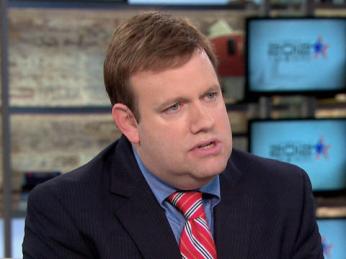Each month I take a look at several issues that have received attention in the news. Let’s start with the easy stuff, first.
The Supremes Have Spoken –
In a 7-2 vote, the U.S. Supreme Court struck down Arizona’s new voter law which would have added a “proof-of-citizenship requirement to a federal voter registration form…”

The Wall Street Journal reported (June 18), that the decision “comes a year after the justices struck down most of a separate Arizona law targeting illegal immigrants and weeks after a federal judge ruled that the sheriff in Phoenix was improperly using racial profiling against Latinos.”
It’s been clear for some time that Arizona has a serious illegal immigration problem. However, the way to solve that problem is not to pass legislation in defiance of federal law, but rather put direct pressure on Congress to enact meaningful legislation. The good news: the House and Senate, who’ve been working on immigration reform, hope to pass a bill through the Senate by July 4th. The bad news: The House is not only moving more slowly, but yesterday, Speaker John Boehner not only criticized the bipartisan effort, but stated that “any immigration bill passing the House ought to have support from a majority of both Republicans and Democrats,” The Washington Postreported (Jun 18), adding, “That’s a high bar on a difficult, often partisan issue.”
Sadly, this same group of representatives would rather waste time voting to overturn issues that have already become law than deal with substantive issues like immigration, the deficit and the budget.
More from Snowden –
Edward Snowden, the NSA contractor who leaked thousands of documents showing how the U.S. Government “spies” on its own citizens, has faced withering criticism from all parts of the political spectrum. As I wrote in “Surveillance, Part II” (June 14), I have a problem with one individual being able to see the big picture of intelligence so completely that he is able to determine what is and is not in the national interest.
NSA Chief General Keith Alexander reported back to a congressional committee yesterday that the programs Snowden has criticized have “helped prevent ‘potential terrorist events over 50 times since 9/11.’ He said at least 10 of the disrupted plots involved terrorism suspects or targets in the United States,” The Post reported.
“Alexander said officials do not plan to release additional information publicly, to avoid revealing sources of methods of operation, but he said the House and Senate intelligence committees will receive classified details of the thwarted plots.”
Further, the general counsel of the Office of the Director of National Intelligence pointed out the real harm Snowden may have caused to important operations. “We are now faced with a situation that, because this information has been made public, we run the risk of losing these collection capabilities. We’re not going to know for many months whether these leaks in fact have caused us to lose these capabilities, but if they do have that effect, there is no doubt that they will cause our national security to be affected.”
Former and current intelligence officials have made clear that while details of intelligence gathering operations are purposely kept secret from the public, there are numerous oversight safeguards in place to protect citizens’ privacy. Having said that, those same officials need to go back and determineprecisely how a single individual like Snowden can have the ability to download so much classified information.
Ethical Take: While we live in a Post 9/11 context, it’s vitally important to balance privacy with security.
The Trust Deficit –
According to a new poll conducted by Republican strategist Frank Luntz, only 35 percent of Americans trust the president; only 27 percent trust their congressman, and only 16 percent trust the IRS.
Reporting on CBS News this morning, Luntz said, “Nobody trusts anybody anymore.”
“The problem is, you’re told one thing one day; they then tell you something different the next; they then change it the third day. Republicans aren’t trusted. Democrats aren’t trusted. Congress is at its lowest numbers in modern history. And so, it’s not just the president. We feel that all these institutions,” Luntz said, “have let us down. We have no confidence in them. And frankly, I think that this is acidic.”
From my perspective, Luntz is hitting the proverbial nail on the head.
“They don’t trust the media. They don’t trust what happens in sports events,” the pollster added. “There is a crisis in confidence in this country, and it prevents us from finding solutions to the challenges that we face.
“I think that this is a very dangerous trend in American society because, who is supposed to bring us together? Who is supposed to unite you? Who are the people that you can turn to when things go wrong, to eventually know that things will go right?”
This has been my chief goal at this Web site – to educate people about the lack of trust and offer solutions to turn things around. Simply distilled: It’s Ethics, Stupid!
Luntz’s solution?
“The only way to rebuild trust is to acknowledge that you made a mistake, admit that you got it wrong, and then try to convince people that it is better to at least attempt to find solutions than it is to sit back and do nothing.”
This remarkably clear-headed solution becomes monumentally impossible for elected leaders because many of them are more focused on the business of politics rather than the business of the people who elected them.
Leaders in Washington need to be reminded, repeatedly, of Lincoln’s words: “You cannot escape the responsibility of tomorrow by evading it today.”
Comments










